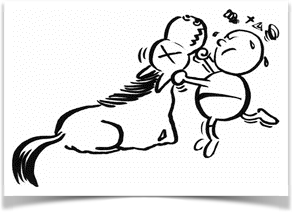A really nice early review of my upcoming novel (Kirkus Reviews, Your Constant Star) claimed that “by definition,” it is not YA fiction.
Specifically, the reviewer said:
Still, authentic teen characters, closely observed settings and a moving plot do not a YA novel make. These protagonists have little room to act. Choices adults made in the past largely determine the course they set and drastically limit the choices they wrestle with now. Though teens have far less freedom of choice in life than in literature written for them, YA fiction by definition places the reins in their hands.
I’d never heard this definition before, but I guess it does explain a few things.
My first novel ― Where the Rocks Say Your Name… ― has teenage protagonists but was marketed as literary adult fiction. After my day-job boss read it, he cornered me in the hall and said: “it doesn’t even have a happy ending!” I told him I thought it was a hopeful ending, but he was still pissed. So I guess you could say I’ve never been accused of generously handing over the reins to my young characters.
My story collection coming out this September has mostly teenage protagonists and I successfully pitched it to the Canada Council as a collection of YA literary short fiction. But when the manuscript was completed, my YA publisher thought the stories were more for adults, and my current regional publisher is publishing it as an adult literary title.
And I guess if you go by the Kirkus reviewer’s definition, an adult collection it is.
I find this very interesting. Because I also keep hearing about “cross-over” authors. What the hell does that mean? You don’t have to be “grown-up” and worn down to enjoy the book? You can be “grown-up” and worn down and still enjoy the book?
If any of you aren’t too sick and tired of this debate, please weigh in. Is the Kirkus definition of YA your definition? Do you have a better one?
The novel I just finished has a young protagonist who is not exactly “free” to choose what awaits him in the end. When I picture my ideal reader, they are of no particular age. Will agents and publishers see this as making it inherently harder or easier to find a readership?
Please. Just don’t bring up why I’m forty-fucking-five and still telling stories about teenagers. That’s a whole other post.\


I am wondering what your definition of “literary” YA fiction is exactly”
How many writers actually leave “the reins” in the hands of their characters, as much as they attempt to fool readers into thinking so. That aside, and also the mundane need for publishers to market their products via labeling, there is perhaps a need to identify “literary YA fiction” (just as we do so-called adult fiction of certain (?) qualities). Definition? “Entertainment +” is closest., most accurate that I can come up with. Congrats on the books, Brenda!
YA is basically impossible to define, yet I still don’t agree with the above definition. I think a lot of people aren’t in a position to chose their place in life or their future, young or old. We are a sum of the things that happen to us and how we deal with them. And for me, that’s what YA is about. Young people coming to terms with their reality and learning to cope with their place in life, whatever it may be. Sure, they may wish to change that, but they may not or they may not be able to. And literature, this shared experience, is what offers us as humans of any age to see that we are not alone in our struggles and passions.
My feelings exactly. Thanks for articulating it so well!